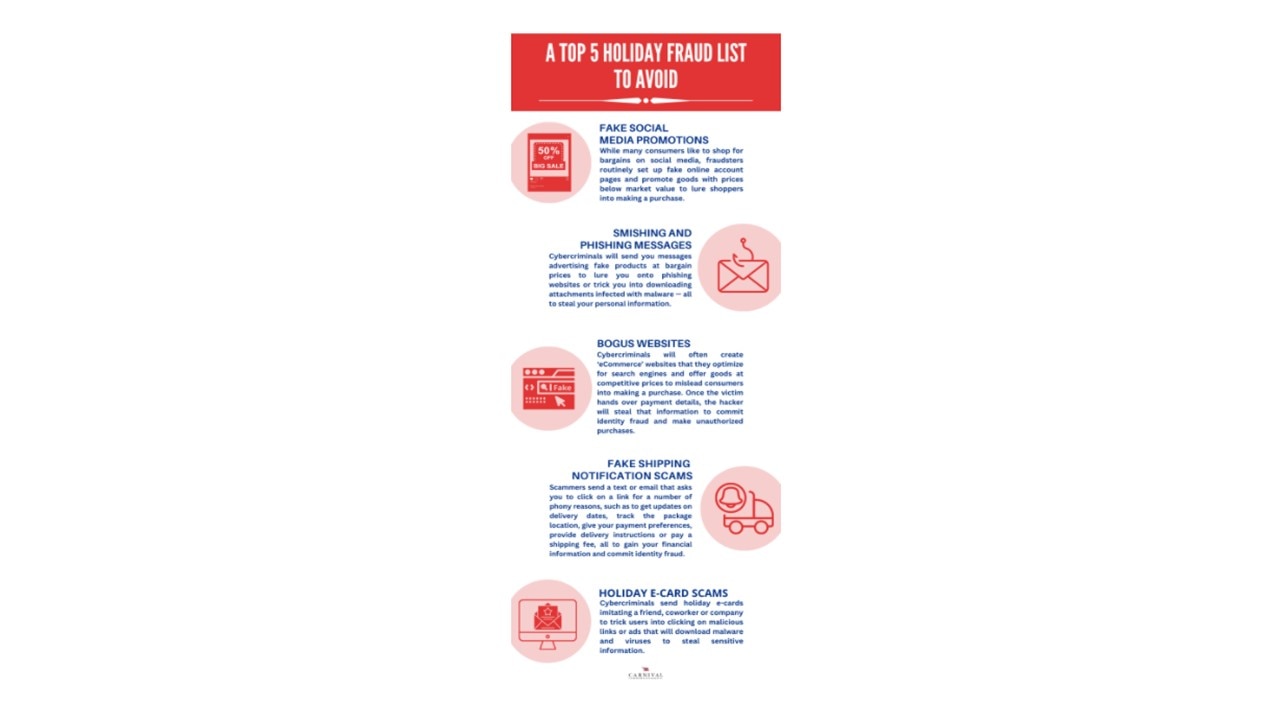How to Protect yourself from the Latest Holiday Cyber-scams
While cinnamon, spice and everything nice fills the air this holiday, cyber-criminals suit up to push seasonal scams through online ads, emails and text messages. The worst part? These scams don’t just rob you of your festive mood – they are crafted to steal financial and personal information!
Phishing and Smishing messages
Fraudsters may bombard you with messages advertising fake products at bargain prices or phoney e-card invites to lure you to phishing websites or downloading infectious attachments.
- Be very careful when reviewing your inbox – never click on links or download attachments from unknown senders.
- Regularly delete text messages and do not open or click links from sources you do not recognise.
- When in doubt, “Submit a Phish” if you see a phishy email.
Promotional websites or social media advertisements
Social media is rampant with scams year-round, but especially during the holidays. Fraudsters routinely set up fake online account pages and websites to promote giveaways, contests, surveys and deals to lure shoppers into compromising their data or bank information.
- Do not click on links to surveys, contests, deals or giveaways unless they appear on the official, verified page of a brand.
- Do not accept follow requests from unfamiliar people or brands, especially if they do not have a large following or have little to no post activity.
- Always verify website addresses by looking for “HTTPS” and a lock icon on the URL bar.
Courier cons
Common scams around package delivery include cyber-criminals asking you to verify your address, update your preferences or even click a “tracking link” that actually sends you to a phishing site. Other scammers will email that they have discovered a package meant for you – and you need to contact them to confirm your details for delivery.
- Never click on any links from an unexpected delivery notice.
- Delete phoney messages as soon as you receive them.
- Always go to the delivery carrier’s website directly or use the retailer’s tracking tools to verify the sender’s identity and avoid these scams.

The Risks of Holiday Scams
- Compromised Sensitive Information – such as, passport, address or computer documents.
- Unauthorised access to banking and other financial accounts or information
- Malware and spyware downloaded on your device
Don’t let hackers take away your holiday spirit!
To avoid the cyber-grinches, learn more about the latest holiday cyber-scams here * from our trusted cyber-security partner, Terranova. *This link takes you to a third-party website. This is an approved, safe link.

